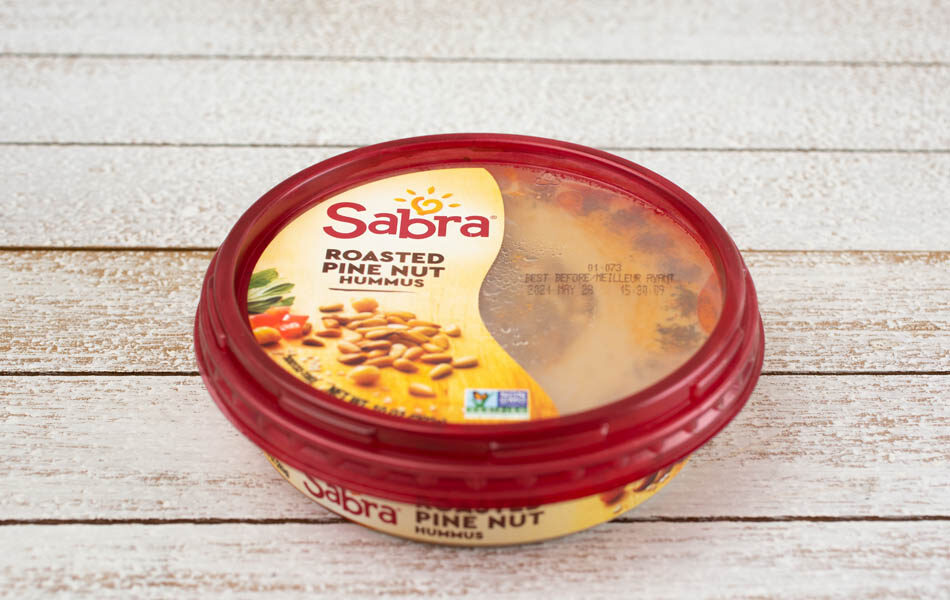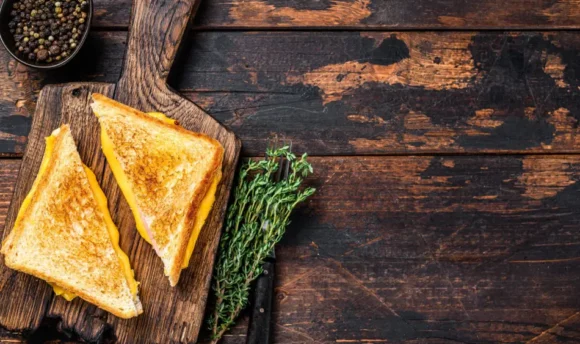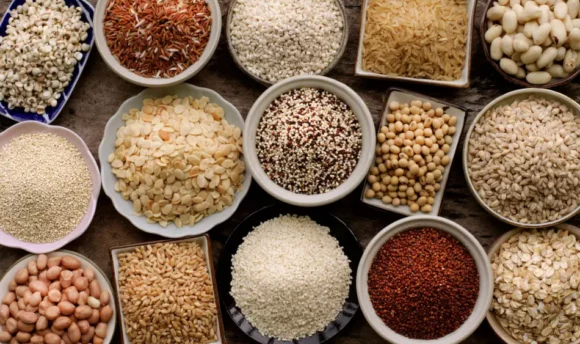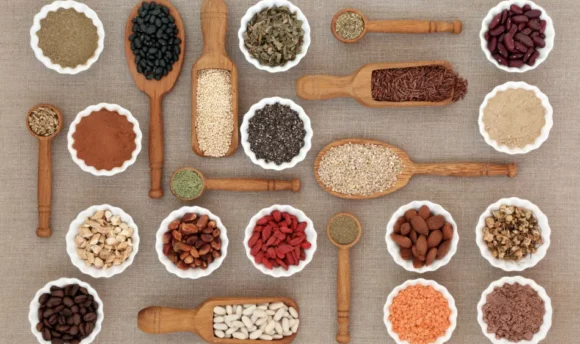Is Sabra Hummus Healthy? Nutrition Facts and Side Effects
Sabra hummus is a popular branded product. Many people enjoy this dip with their meals, but is it actually healthy? We provide nutritional information about this hummus, potential side effects, health benefits, and a low-calorie homemade hummus recipe for your balanced diet.

Certain brands of hummus claim to promote wellness and nutrition.
Some people might buy hummus brands without looking at the ingredients. This can be dangerous for those who have health problems or want to lose weight. Sabra hummus is one brand that promotes balanced diets, but this food product doesn’t always reciprocate that.
You should learn more about store-bought hummus before buying it. Following a nutritious diet means eating the right food for your long-term health.
Keep on reading to discover whether Sabra hummus is healthy or not.
Is Sabra Hummus Healthy?
Sabra is not the healthiest brand of hummus you can find in today’s market. This product contains artificial ingredients and a high sodium content that could damage your health. Not many people know that Sabra is riddled with unnecessary food preservatives.
You should think twice before buying a tub of Sabra classic hummus. The description might sound delicious, but it doesn’t state the hidden ingredients. One of these includes potassium sorbate – a preservative that has been linked to stomach problems and chronic migraines.
Some other reasons include the high sodium and fat levels. Many hummus brands use sodium to flavor food or bind compounds together. Eating too much salt and saturated fat could cause high blood pressure spikes, especially in those who have type 2 diabetes or hypertension.
Of course, you can eat this hummus now and then as a treat, but try to limit your intake. You could make your own hummus at home using fresh ingredients.
What Is Sabra Hummus Made of?
The classic hummus is made of cooked chickpeas, water, ground sesame, soybean oil, garlic, salt, citric acid, and potassium sorbate. Some other dip versions will have different ingredients, so it’s important to look at those before buying the product.
Sabra claims that both soybean oil and citric acid are non-GMO ingredients. This means they were created without any genetic engineering. However, it’s important to note that potassium sorbate is a preservative known to maintain freshness, which isn’t always great for your health.
Be aware that other Sabra dips have sugars and refined oils. The caramelized onion hummus contains sunflower oil, salt, brown sugar, and distilled vinegar. One study found that too much sugar in your diet can increase the risk of heart disease and poor weight management.
Types of Sabra Hummus
Sabra has many types of hummus you can buy in your local grocery store. They have different flavors that range from lemon to roasted pine nuts. If you want to maintain a healthy diet, avoid these hummus products and enjoy making hummus using the most high-quality ingredients.
Here are some of their most popular hummus products:
- Caramelized Onion Hummus
- Classic Hummus
- Everything Bagel Seasoned Hummus
- Greek Inspired Hummus
- Jalapeno Hummus
- Lemon Twist Hummus
- Olive Tapenade Hummus
- Roasted Garlic Hummus
- Roasted Pine Nut Hummus
- Roasted Red Pepper Hummus
- Spinach & Artichoke Hummus
- Supremely Spicy Hummus
3 Possible Side Effects of Sabra Hummus
Choosing products with saturated fat, added sugar, and refined ingredients is bound to cause some health complications. Below you will find some common disadvantages of Sabra hummus.
#1 Damages your heart
Consuming too much sodium can strain your blood vessels. This is because the body retains more water and increases blood pressure. In the long term, following a high-sodium diet that contains this hummus could damage your heart and cause heart attacks or strokes.
#2 Causes digestive distress
Potassium sorbate is a preservative that can negatively impact digestion. It might decrease beneficial bacteria that prevent serious constipation or diarrhea. Plus, sugar and saturated fat naturally weaken digestion function, so it’s important to avoid processed foods on a diet.
#3 Encourages weight gain
Sabra hummus contains many calories and total carbohydrates that may impact your current weight. One study found that a high-carb diet will exceed the recommended daily calorie intake, which encourages the body to produce more stubborn fat around your stomach and face.
2 Potential Sabra Hummus Health Benefits
Sabra may offer some benefits in every two tablespoons, depending on which dip you get. Keep reading to find some potential advantages to consuming this hummus.
#1 May strengthen bones
Chickpeas contain iron and calcium – two important minerals that protect your bones. You need at least 1,000mg of calcium a day to stay healthy. Sabra hummus uses ground chickpeas as a main ingredient, which is perfect for those who need extra protection against osteoporosis.
#2 Could improve your skin
Soybean oil uses linoleic acid, which restores collagen and increases your skin’s elasticity. Any non-GMO ingredient like this one is great for keeping the face looking fresh. You can enjoy hummus knowing it may positively impact your skin, but that heavily depends on the hummus.
Nutrition Facts of Sabra Hummus
Learning about the nutrition facts of this hummus is very important. You can determine whether the branded product is suitable enough for your current diet and routine.
Here is the nutritional value of Sabra hummus per 100 grams:
Nutritional value (per 100g)
| Calories/Nutrient (per 100g) | Amount |
| Calories (kcal) | 286 |
| Net Carbs (g) | 14.3 |
| Fiber (g) | 3.6 |
| Sugar (g) | 0 |
| Fats (Total) | 21.4 |
| Protein (g) | 7.14 |
| Cholesterol (mg) | 0 |
Source: https://fdc.nal.usda.gov/fdc-app.html#/food-details/371697/nutrients
High in calories
Sabra hummus is high in calories and may cause weight gain. This makes it unsuitable for people who are trying to lose stubborn weight. Consuming too many calories could increase the risk of obesity, type 2 diabetes, coronary artery disease, and other heart-related problems.
High in fats
This hummus contains too many saturated fats. A lack of good fat in your diet can lead to poor blood glucose control, especially for those with diabetes. Instead of choosing this branded hummus, make your own to increase the fat and soluble and insoluble fiber content.
High in carbohydrates
There is a high number of complex carbohydrates in this hummus. Following a high-carb diet could increase low-density lipoprotein – bad cholesterol that damages your heart. Aim to eat fewer carbs on a balanced diet and only consume Sabra hummus on special occasions.
High in sodium
Sodium is a very dangerous ingredient that causes a range of health problems. Some of these comprise high blood pressure, heart disease, and stroke. It’s recommended that people stay below 2,300mg of sodium per day to stay healthy and avoid damaging normal heart functions.
Healthy Homemade Hummus Recipe
You can make your own version of hummus using simple ingredients like lemon juice, garbanzo beans, and green veggies. Just double-check that everything you buy is completely fresh.
Here are the ingredients and directions for a healthy hummus recipe:
Ingredients
- 2 (15oz cans) chickpeas
- ⅓ cup chickpea liquid
- ½ cup tahini
- ¼ cup olive oil
- 2 juiced lemons
- 2 garlic cloves
- 1 tsp cumin
- ½ tsp kosher salt
Optional garnish:
- Extra-virgin olive oil
- Paprika
- Chopped parsley
Directions
- Add every ingredient to your blender and turn it on high for 30 seconds.
- You can throw in some chickpea liquid to make the texture soft.
- Turn the blender off and check that the hummus is well-mixed.
- Put the hummus in a small tub and garnish with olive oil, paprika, and parsley.
If you are looking for an extra hand in your weight loss journey, we would recommend checking the best nutrition apps. Most nutrition apps have features like calorie counting and other essential calculators that may boost your weight loss results.
FAQs
Sabra is currently upgrading their facility, which has slowed down production and distribution. You can use the store locator tool to find hummus products in your local grocery stores.
This branded hummus is not suitable for weight loss. You should eat organic hummus to lose weight, as these natural versions usually avoid saturated fats and added sugars.
No, you should stop eating Sabra hummus daily if you want to be healthy. Instead, opt for this hummus on special occasions or days you wish to treat yourself to a diet.
You can buy Sabra hummus in your local grocery stores like Walmart or Costco. The Sabra website has a store locator that tells you exactly what nearby shops sell this product.
A Word From a Nutritionist
You should only buy hummus that contains natural ingredients. This ensures you don’t fuel your body with artificial sweeteners or preservatives like potassium sorbate. Some people make their own versions of hummus using whole grains, garlic cloves, seasoning, and plain chickpeas.
A balanced diet needs to have vitamins, monounsaturated fats, protein, and fiber. You can get these nutrients from foods like oatmeal and chicken-based stir-fry. Just remember that eating the right food can prevent health complications and protect your heart, gut, brain, and bones.
Branded products can hide plenty of damaging substances. Therefore, you should always read the nutritional information before purchasing hummus. For those who have digestive issues, look out for locust bean gum – a thickening agent that may cause gas, diarrhea, and bloating.
Conclusion
Sabra hummus is not the healthiest product to have on a balanced diet. You should make your own at home using a food processor or check the ingredients on the back of other products. Just remember to consume foods that contain healthy fats, dietary fiber, and protein.

















































 Select your language:
Select your language: 








